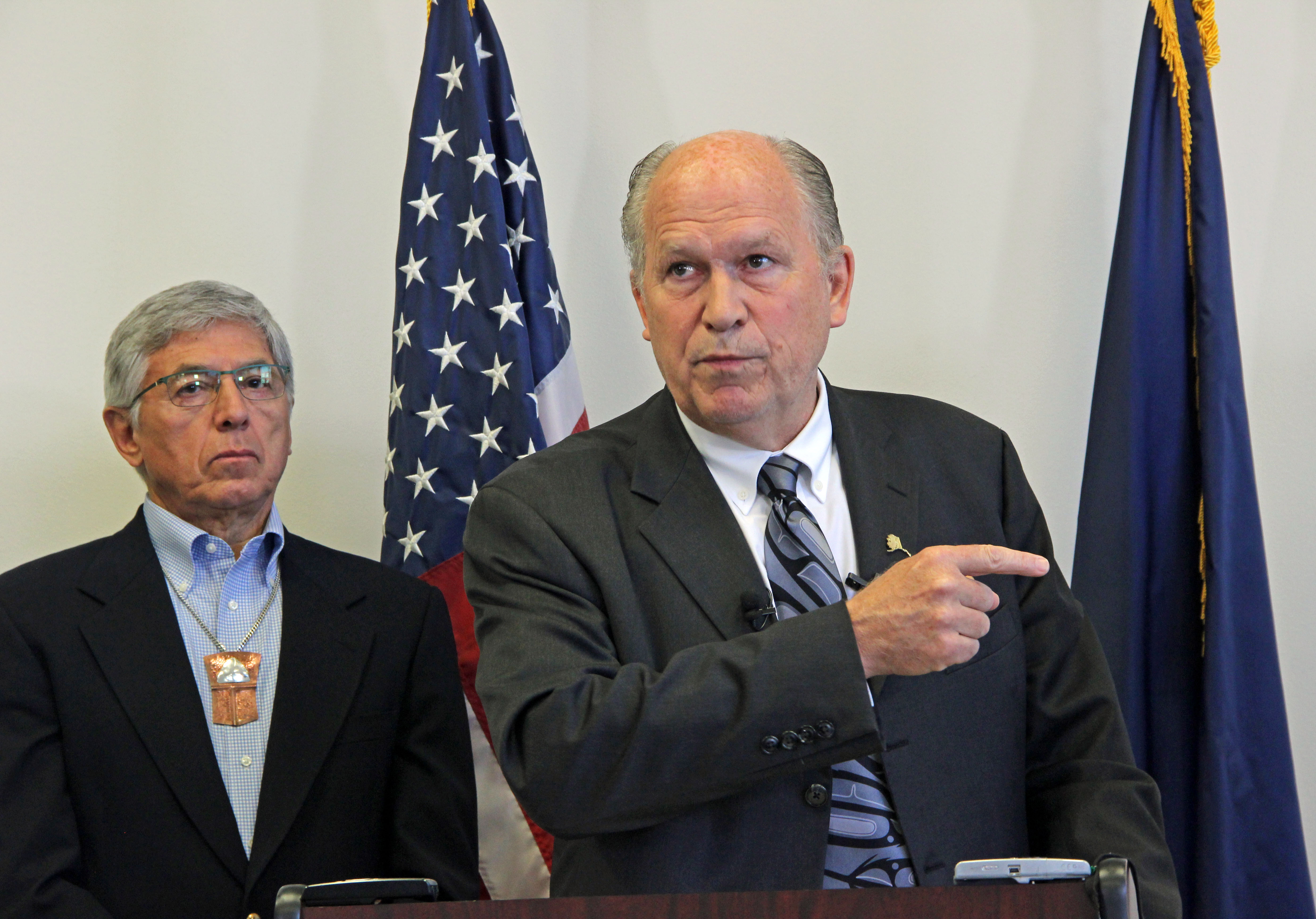
After four credit downgrades in eight months, Alaska received some good news Monday: S&P Global will not lower the state’s credit rating — at least for now.
That announcement came as something of a surprise: S&P warned in June that if lawmakers couldn’t come up with a long-term budget solution, it would likely knock down Alaska’s credit rating within 90 days.
But S&P analyst John Sugden said Gov. Bill Walker’s decision to veto $1.3 billion in spending — including half of residents’ PFD checks — bought the state some breathing room.
“While there isn’t permanent reform, and there’s still a long-term structural imbalance, we feel the actions taken by the governor and the legislature buy Alaska some time while they sort out how they’re going to bring their budget back into balance,” Sugden said in a phone interview.
In its report, S&P noted that with the veto, Alaska will draw about $3.2 billion from savings — about the same amount it would have taken under the long-term fiscal plan proposed by the governor last year.
Alaska still has a negative outlook, which means S&P could downgrade the state within one to two years. A lower credit rating makes it more expensive for the state and communities to borrow money, and it’s a signal to markets about the strength of state finances.
S&P first downgraded Alaska from its highest AAA rating in January. That was followed bydowngrades from the two other major rating firms, Moody’s Investors Service and Fitch Ratings.
Alaska still holds a solid AA+ rating from S&P, largely because of its large savings accounts. But in its report, the agency warned that if lawmakers do not agree on some kind of “structural fiscal reform” in the coming session, that rating is likely to drop.
“In our view,” S&P’s analysts wrote, “the future of Alaska’s creditworthiness likely hinges on the willingness and ability of its political leaders to reach agreement on substantive fiscal reforms in the coming months.”
Rachel Waldholz covers energy and the environment for Alaska's Energy Desk, a collaboration between Alaska Public Media, KTOO in Juneau and KUCB in Unalaska. Before coming to Anchorage, she spent two years reporting for Raven Radio in Sitka. Rachel studied documentary production at the UC Berkeley Graduate School of Journalism, and her short film, A Confused War won several awards. Her work has appeared on Morning Edition, All Things Considered, and Marketplace, among other outlets.
rwaldholz (at) alaskapublic (dot) org | 907.550.8432 | About Rachel




